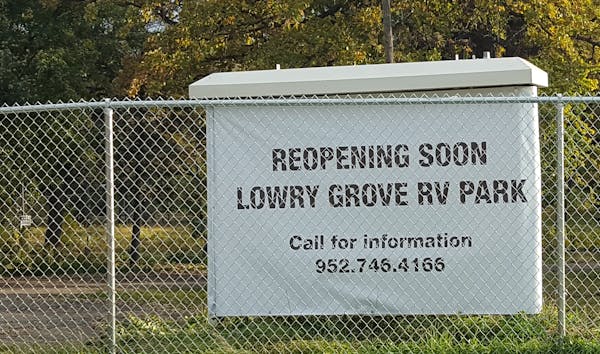St. Anthony officials are taking heat over recent allegations that elected leaders and city staffers encouraged the closing of the city's only mobile home park in order to rid it of low-income families of color.
Residents blasted city officials during the public forum at Tuesday's City Council meeting, voicing concerns over a federal lawsuit filed last month by the developer that bought and closed Lowry Grove mobile home park to redevelop it.
The city has denied accusations raised in the suit, including one stating that St. Anthony officials induced the developer "to close the mobile home park in order to rid the City of low-income, multicultural citizens that the City deemed undesirable."
"There was no concerted effort by myself or the council to do what was alleged in the paper," Mayor Jerry Faust said at the Aug. 28 meeting. "And that will come out ... The truth will always prevail."
Tuesday's forum sparked several tense exchanges between community members and city officials, as well as bouts of applause as residents aired their frustrations.
"There is no side to root for in this fight," resident Andrea Edwards said, referring to the city and developer. "I don't know if you were actively trying to get these people out of our town, but from what I've seen, you didn't do much to help them either."
Several homeowners displaced by the mobile home park's closure stepped forward to speak, including Antonia Alvarez, a Lowry Grove community organizer.
"I want answers," Alvarez told city officials through a translator. "People are homeless because of people like you all. You have to pay for your responsibility."
The Village, the company that bought Lowry Grove for $6 million in 2016, closed and emptied the site last year to transform it into high-density housing, displacing about 100 families. Its suit accuses the city of fraud and leading it to buy Lowry Grove without ever intending to approve the project slated to take its place.
Now that project has been tabled indefinitely after city officials indicated in May that they likely would not offer tax-increment financing (TIF), according to developer Brad Hoyt.
"[Hoyt] didn't like that, and now he's suing the city and he's using you," City Council Member Hal Gray told residents at Tuesday's meeting. "If anybody wants to Google the name of the developer, you can kind of see that we were going to get sued no matter what happened."
Hoyt has sued cities over development projects before.
St. Anthony leaders also faced criticism Tuesday for their involvement in what one resident described as "more expensive legal entanglements." The suburb of 8,800 has faced several high-profile legal battles stemming from recent events, including the killing of Philando Castile by a former St. Anthony police officer and the initial rejection of an Islamic center.
During the public forum, former Lowry Grove residents spoke about the need for affordable housing in St. Anthony. "I actually got the chance to go to college just because I was able to afford it, thanks to affordable housing," Gloria Castillo said. "It helped a lot of people become better, work harder."
Some asked why the city didn't do more to protect Lowry Grove families.
"We have no right to get involved in a private transaction between two parties," Gray said. "We had no right to step in."
Hannah Covington • 612-673-4751
Body of missing teenage boy recovered from southwest Minnesota lake

In Duluth, it was windy enough on Tuesday to flip a FedEx truck traveling on the Bong Bridge

A tale of 124 hoarded Minnesota cats has at least a hundred happy endings

